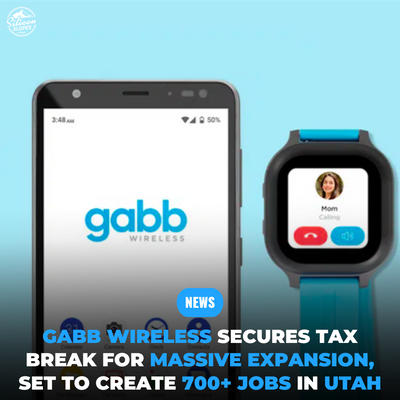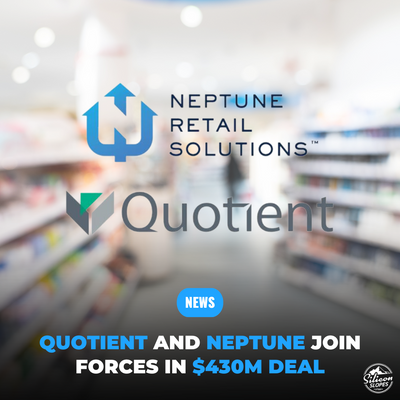Some 18 months into the administration of its new CEO, is Overstock finally ready to shed its past distractions and capitalize on a newfound focus?
It may have started as a simple phone call, one friend telling another he had started a new gig at a new employer. But nearly one month later, after several interviews and a fair amount of digging, I am convinced that a lot of people are underestimating Overstock (NASDAQ:OSTK).

Overstock Past and Present
Most people in Utah and within the greater tech community know about Overstock, or at least they know what Overstock used to be. Unfortunately, many of those impressions are based upon the often distracting and occasionally crazy-sounding public pronouncements of its former CEO, Patrick M. Byrne.
Overstock got its start in 1999 when successful businessman, Patrick, was approached about the possibility of investing in a startup: D2-Discounts Direct. And so Patrick did, putting $700,000 into the company for a 60% stake, taking over as CEO in September of that year, and renaming the company Overstock one month later.
Under Patrick, the company continued to expand its efforts into acquiring returned and excess merchandise that Overstock could flip on the Internet for a profit. And it was fairly successful at doing do so as Wikipedia reported in late 2001 that Overstock had acquired and sold the inventories of over 18 companies.
However, rather than spend this entire article focused on the past, here’s a brief summary of some highlights (and lowlights) from the over 20-year history of Overstock:
- 2002: Goes public on the NASDAQ stock market
- 2005: Launches its provocative“It’s all about the O” ad campaign
- 2005: Patrick begins public allegations against various Wall Street firms accusing them of Naked Short Selling and files the first of multiple lawsuits against select financial firms
- 2009: Achieves its first annual profit
- 2010: Hits $1 billion in annual sales
- 2011: Acquires naming rights to the Oakland—Alameda Coliseum, home of the Oakland A’s major league baseball team
- 2014: Becomes the first major eCommerce retailer to accept bitcoin as payment for its products
- 2014: Forms Medici Ventures as a venture capital firm focused on investments in blockchain companies and technologies
- 2016: CEO Patrick takes a four-month “leave of absence” due to Hepatitis C complications
- 2016: Final out-of-court “stock market manipulation” settlement reached
- 2019 (Aug. 12): Issues bizarre news release titled Overstock.com CEO Comments on Deep State, Withholds Further Comment
- 2019 (Aug. 22): Patrick resigns as CEO and board member as Overstock issues a 1,600-word letter from Byrne in the form of a news release
- 2019 (Sept. 16—18): Patrick sells or donates all of his shares in Overstock
- 2019 (Sept. 23): Jonathan Johnson named as CEO of Overstock, CFO Resigns, Acting CFO Named
- 2020 (Mar. 13): 20% drop in 2019 revenue vs. 2018 results (after essentially flat revenue for the prior four years)
- 2020 (Mar. 31): Appoints new Chief Financial Officer
- 2020 (June 29): Overstock is 1 of 3 firms each awarded a three-year eCommerce contract by the United States General Services Administration (GSA)
- 2021 (Jan. 25): Management of Medici Ventures turned over to VC firm, Pelion Venture Partners
- 2021 (Feb. 26): 75% increase in 2020 revenue vs. 2019 results
Now the rest of the multi-pronged story in mostly chronological order.
A Rumor about Medici Ventures
In mid-January, before I even launched Deseret Business Watch, one of my close friends asked if I’d heard anything about Overstock getting out of the blockchain/venture capital business?
I hadn’t, but I was also surprised to hear such a rumor.
Specifically, I knew that Overstock had put a fair amount of effort into blockchain, including being the first eCommerce platform to accept blockchain payments. It had also launched Medici Ventures some five years earlier specifically to invest in blockchain.

“Yup,” he continued. “Supposedly Pelion Venture Partners is gonna take over Medici.”
Hmmm, I thought, and I filed away the rumor.
What the Heck is Overstock Pro?
A few weeks later my long-time friend, John, called me out of the blue to let me know he had landed a sales position with Overstock.
But as we visited about this new position, I learn that he had joined what was a new initiative within the eCommerce giant, a group exclusively focused on government sales called Overstock Pro.

Never heard of it, I said, so he proceeded to fill me in.
Turns out Overstock announced last July that it was one of three firms awarded contracts by the GSA to sell goods to federal government agencies under a three-year pilot program.
Sounded intriguing; so after I mentioned that I’d like to know more, he said he’d see if he could track down a PR person for me.
“As Big As Overstock”
Nearly three weeks later I got the skinny on Overstock Pro during an interview with its Vice President, Steve Hopkins.
Turns out that Steve has been with Overstock in one position or another since the fall of 2016, including a multi-year stint with Medici Ventures, which made me even more intrigued.
During the course of our nearly 45-minute conversation, Steve explained that the premise behind Overstock Pro had been brewing within Overstock for some time. But it had truly blossomed into reality when the GSA named Overstock one of the 3 firms to land its pilot program contract.
Apparently, below a certain purchasing threshold, the federal government has very little visibility of what its employees are spending money on, especially if they’re using Purchasing Cards (aka, P-Cards).
Hence, this three-year GSA pilot program is specifically designed to give it and the participating federal agencies a greater sense of where and how dollars are being spent. As such, individual purchases are set at $10,000 or less and may only be made with a government P-Card.
So when Overstock executives approached Steve about the possibility of leading the new Overstock Pro initiative, he asked them what their expectations were for this new government-focused sales platform.
They’re response was quite direct:
“(We expect it to become) “as big as Overstock.”
At that, Steve was hooked.
Less than 48 hours later, Overstock announced its annual revenue had jumped by 75% on a year-over-year basis to $2.5 billion.
A 75% Jump in Revenue, But a 40% Sell-off in 10 Days?
In spite of all the laws/regulations in place to prevent taking advantage of Insider Information, the more important the news/information of a publicly traded company, the greater the likelihood that such information is going to be leaked to the buying public. Period.
In fact, such Whisper Campaigns are fairly common in the stock market.
So when prices in Overstock shares topped-out at close to $112 on February 16 some 10 days before the formal release of the 2020 results, and yet the share price of OSTK dropped 40% just 10 days later to under $67, I shouldn’t have been surprised — even if Overstock’s YoY revenue had jumped 75% versus 2019 results. But I was.
Barron’s suggested, however, that Overstock investors may have been expecting even greater results, in spite of the fact that
“… shares (were) up nearly 84% just since the start of 2021, and have soared 1,105% in the past 12 months.”
Overstock’s Investor Relations Director, Alexis Callahan, pointed out, however, that the majority of its shareholders are retail investors, which often have a different approach to investing than “professional investors.”
Such a disconnect between the definite 2020 performance boost and the short-term stock price nosedive led me to wonder what I had missed about Overstock, so I started digging further. And what I discovered can be summarized into three words:
Focus. Focus. Focus.
As noted earlier in this article, Overstock announced in late January that it would
- Convert Medici Ventures into a limited partnership, a blockchain-focused Fund, with
- Pelion Venture Partners becoming the managing partner of the Fund, and with
- Overstock becoming a limited partner in the Fund.
Additionally, Pelion would have sole authority and responsibility regarding Fund
- Investing decisions,
- Board member appointments for portfolio companies, and
- Exercising shareholder rights for assets Medici Ventures currently holds.
Overstock also committed to deploy up to $44.5 million in investment capital into the expected eight-year-life of the Fund, with an option for an additional $30 million investment.
According to Matt Mosman, the Pelion General Partner who will manage the new Fund:
“We’re thrilled to be taking on this role with (Medici Ventures). And we’re really looking forward to helping these (portfolio companies) to be successful.”
Matt explained that there are currently 21 portfolio companies within Medici Ventures, with the largest being t0 (pronounced Tee-Zero).
To be clear, however, this partnership between Overstock and Pelion is not a sale. In fact, Overstock’s Alexis emphasized that it was what she termed a “strategic transaction.”
As with most venture capital firms, Pelion Venture Partners will receive a fee for its management services of the Fund, an amount set at $2.5 million per year by contract. Additionally, Pelion is set to receive either 30% or 15% of the proceeds from the sale of any Fund portfolio company (based upon terms set in advance between Overstock and Pelion).
Launched in 1986 as Utah Ventures (then UV Partners until 2009), Pelion Venture Partners has raised seven different funds since its founding with a total of $1.6 billion of Assets Under Management (AUM). Pelion is currently focused on investments in
- Digital Media,
- Infrastructure & Storage,
- Open Source,
- Security, and
- Software/SaaS.
And in the opinion of Overstock’s Alexis, Pelion is a “world-class VC firm.”
Overstock PRO Private Demo
Now back to the Overstock Pro part of this story.
It turns out that the actual URL for this government-focused eCommerce platform is NOT OverstockPRO.com. It’s OverstockGovernment.com (primarily because someone else is already using the obvious Web address and they wanted a crapload of cash to sell it).
But if you visit OverstockGovernment.com on the Web today, you won’t see any products or product listings. In fact, as shown below, the homepage is quite spartan. And that’s apparently on purpose.
Any government agency or employee (federal, regional, state, and/or local) who wants to purchase products on OverstockGovernment.com must
- Apply for access, and
- Be vetted and approved first.
No exceptions.
The main reason for this is that once a government agency/entity is approved by Overstock Pro, all purchases made on the site are automatically tax exempt, with no need for recurring tax exempt re-qualification prior to each purchase (as is required by some eCommerce platforms).
All shipping is free too, with two-day delivery standard.
According to David Grundvig, Senior Director of Overstock Pro, OverstockGovernment.com contains a “curated catalog of products” that are specifically designed for government buyers of all types.
Such products are categorized across eight different categories:
- Office,
- Furniture,
- Janitorial & Cleaning,
- Lighting & Décor,
- Emergency Preparedness,
- Electronics,
- Health & Fitness, and
- More Essentials,
and represent over 3.5 million products that are provided by ~3,000 partners on any given day.
Additionally, if a given product meets such formal government certification criteria as
- Socio-Economic Certified,
- Environmental Certified, and/or
- AbilityOne Certified,
these certifications are noted on the site, a critical requirement for many governmental entities.
In addition to the GSA Contract that Overstock landed mid-summer 2020, Overstock Pro also landed a separate contract with the state of Utah in late November, a purchasing agreement extensible to any government entity within the state, from fire department to university and from school districts to townships.
And so far, the Overstock Pro has signed up some 40 such government entities throughout the state, with more joining weekly.
The Missing Piece? Marketing.
The common saying asks,
Does a falling tree makes a sound if no one is in the forest to hear it fall?
Conversely, those of us in marketing explain what the benefits are of that falling tree to different individuals, as well as the when, where, why, and how that tree fell in the first place.
I suspect that if one were to interview 100 adults and ask them about eCommerce companies, very few would name Overstock as a market leader in the online space, especially if they’re aware of some of the challenges the company has faced over the years as a result of being led by a brilliant yet clearly eccentric leader.
However, that individual is no longer at the helm. In fact, there’s also a new CFO in place.
And this new Overstock Pro initiative looks very, very promising to me. In fact, I think Steve Hopkins may be exactly right:
Overstock Pro may come to equal the size and strength of especially Overstock (the mother ship).
Taken a step further, there in Overstock’s 2020 Results Investor Presentation on slides 17—21 is this new (at least to me) re-positioning of Overstock.
No longer is Overstock the Discount Bin of eCommerce, although the company will continue to carry and sell closeouts and discontinued items.
Rather it is now the online platform for “Dream Homes for All” — primarily millennials, granted — and mostly women.
But in this re-jiggering of the positioning and messaging feels spot on to me. And in this place, Overstock is actually the 5th largest company in this category in North America, a category that’s growing significantly.
And that’s a defensible and interesting space for the company to be.
BUT … there’s one more missing puzzle piece that fell into place for me during Overstock’s 2020 Investor Presentation which, if you haven’t read or didn’t participate in, you missed it. And that’s because the only place where this has been formally announced so far.
Specifically, Overstock has a new Chief Marketing Officer starting in late March, and if pedigree means anything — Amazon, Samsung, Walmart, Cadbury, Nestle and more — the marketplace better get ready ‘cause Elizabeth Solomon is coming.
Clearly, Elizabeth is only one person.
But the right person in the right place at the right time (coupled with everything else noted in this Feature Story), well … as far as this prognosticator/writer is concerned, investors and the industry in general should not sleep on Overstock.
NOTE: This article was originally published by Deseret Business Watch. A few minor editorial changes have been made with this version to better match the current Silicon Slopes writing style.







